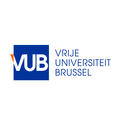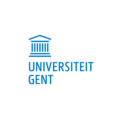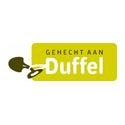In short
As the name suggests, the CIVISANO project examines health (SANO) in citizens (CIVI). Sciensano does this by examining the perceived (e.g. attractiveness of public spaces, perception of social support or perception of food availability) and objective (e.g. walkability assessment or food store audits) environmental determinants that impact physical activity and eating behaviours of residents living in two Flemish municipalities. The project uses a mixed method approach, with both quantitative and qualitative data. The focus is on health promotion among socioeconomic disadvantaged adults, as these groups tend to have more unhealthy behaviours like insufficient physical activity and unhealthy eating habits. This way, we can decrease the health inequity gap.
Project description
Obesity has a strong socio-economic profile. Unhealthy behaviors like insufficient physical activity and unhealthy eating tend to be more pronounced among socio-economically deprived groups. The CIVISANO project examines the influence of socio-economic characteristics and objective as well as perceived environmental determinants on physical activity and eating behavior in the local context of two Flemish municipalities in Belgium.
Study design
This research project has an overall co-creative approach, engaging citizens and local stakeholders to bridge knowledge development and health promotion. We use a mixed-methods approach, with both quantitative and qualitative data to obtain different, but complementary data on the same topic.
Quantitative research
A. Survey
We approach adults residing in two Flemish municipalities, Duffel and Herselt, to fill out a survey capturing their eating and movement behaviors and their perception of the local physical, food and social environment.
B. Environmental research
We spatially analyse data on the built and food environments such as food outlets, green spaces and walking paths. This way, we assess the associations between socio-economic status and the built and food environments among residents.
Qualitative research
We also gather perceived context information from socio-economic disadvantaged persons (n=until data saturation) by using participatory methods like Photovoice, Walk-Along, web-based Individual Map Creation. During focus groups, we discusse these determinants and possible actions. With the stakeholder group in each municipality, we conduct a Group Model Building workshop. Furthermore, we evaluate the participatory process.
The importance of community engagement
Community engagement is a useful strategy to reduce health inequalities. CIVISANO explains key relational and structural pathways for impact on health equity outcomes in a local context. Using both traditional and novel geographic approaches, this study aspires to obtain a comprehensive understanding of the associations between the built and food environments and socio-economic status. The combination of subjective and objective measures, using validated and innovative strategies provides a robust assessment of the municipality environment.
The strong knowledge exchange and capacity-building in the local settings expects to contribute to our understanding of how to maximise research impact in this field. Through this project, we create effective evidence in linking health enhancing lifestyle among socio-economic disadvantaged groups with the physical, food and social environments.
Sciensano's project investigator(s):
Service(s) working on this project
Partners






